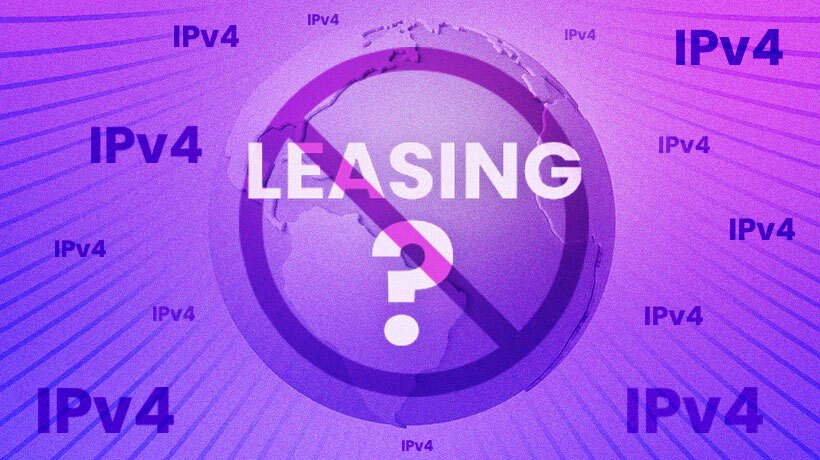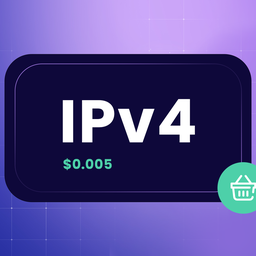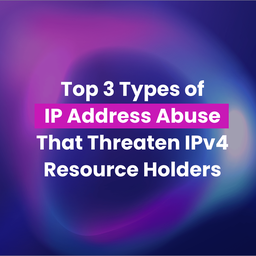The policy of the Asia-Pacific Regional Internet Registry (APNIC) that does not accept IP leasing has been questioned during its recent meeting in conjunction with APRICOT. While each of the five global RIRs has its own policies regarding IP leasing, this opinion piece argues that the APNIC policy is outdated and should be addressed.
APINIC, the Regional Internet Registry (RIR) for the Asia-Pacific region, recently held its 55th meeting in conjunction with APRICOT from 20 February to 2 March 2023, in Manila, the Philippines. One of the critical discussions at the conference was centred on the APNIC policy that does not accept IP leasing and has a questionable understanding of its necessity.
According to the APNIC policy manual, which was referenced during the meeting, APNIC allocates and assigns resources based on need, and ‘leasing is not allowed’ nor does it form a basis for further need. Additionally, it was noted that any allocated IP addresses must be returned to APNIC if the LIR/ISP holding them ceases to provide Internet connectivity services. The policy also stipulates that justification is needed for delegating addresses to customers.
In today’s rapidly evolving and cross-dimensional business environment, I believe such policies are not aligned with current reality and business practices and should be addressed.
In this article, I shall argue that APNIC should allow IP leasing as a global market standard, as this would bring many benefits including instant provisioning, more accurate WHOIS information, and availability of more IPv4 addresses in a more constricted market, leading to extra revenue for all parties involved. While there are some potential risks to consider, such as abuse observability and IP hijacking, it is my opinion that the benefits of IP leasing heavily outweigh them.
Differences among the RIRs
IP leasing typically involves temporarily allowing a client to use an IP address for a defined period of time, in exchange for a rental fee, without transferring ownership or rights to the IP address. Interestingly, the legitimacy of leasing is viewed differently across various RIRs.
RIRs were established in the mid-1990s to efficiently manage and allocate Internet number resources, which were becoming scarce due to the continuous growth of the Internet. RIR policies differ because they are tailored to the needs and characteristics of the regions they serve and the business practices of those within them.
For example, the RIPE NCC’s service region – Europe, the Middle East, and parts of Central Asia – have unique cultural, economic, and political characteristics that influence how IPv4 number resources are managed and allocated. Additionally, the RIPE NCC has a long history of promoting the development of the Internet in its region, which has helped to foster a strong sense of community among its members.
Concurrently, APNIC’s service region includes countries with vastly different economic and technological development levels, so the RIR must adapt its policies to accommodate these differences accordingly.
Justification process in question
Out of the five global RIRs, the RIPE NCC could be considered the most progressive because it is in step with current industry developments and practices. For example, it has eliminated the justification process for transferring IPv4 address space. In other words, if you purchase IP resources from the RIPE NCC, you are not required to demonstrate your need or your intended plan for using these resources.
However, it’s important to note that justification is still necessary if you’re on a waiting list to receive an IP address allocation. But if a company is buying IP space from another party, then there’s no need for that.
When a company requires IP addresses and has already justified spending money on purchasing them, what additional justification do they need to provide for the transfer of ownership? After all, if the enterprise has already determined a legitimate business need for the addresses and is willing to pay for them, it seems reasonable that this would be sufficient enough for the RIR to approve the transfer.
IPv4 addresses in an evolving market
As policies were developed alongside the emergence of RIRs, each RIR has the ability to respond to changes in the market, since the community is actively involved in solving address policy issues based on evolving business needs and opportunities.
The ever-evolving Internet market has seen a shift towards IPv4 addresses in some ways resembling a commodity. Despite APNIC policy requirements, there does not seem to be a rush to return unallocated IP addresses. Keeping accurate records should be the focus rather than dictating a ‘good’ or ‘bad’ business use of the resources.
When looking at the structure of RIRs, they are the authorities of the registration databases of IP address resources. From this perspective, RIRs should limit themselves to managing registration and allow the market to determine how and to whom IP resources are allocated. Registering these resources should remain paramount to a stable and secure RIR system.
Although it is essential to consider security measures to prevent IP address hijacking, the reality is that IPv4 addresses are being treated as valuable assets that can be transferred within the market. Therefore, it is necessary to strike a balance between ensuring security and proper registration and allowing the market to evolve as it has over the past decades.
Risks and benefits of leasing
When considering the risks and benefits of IP leasing, it is important to be aware of potential risks such as abuse observability, rDNS record validation, ASN blocklists, dubious/malicious actors, and IP hijacking.
However, if these risks are properly attended to and, where possible, mitigated, I believe that they are heavily outweighed by the many benefits of leasing - including instant provisioning, no CAPEX requirement, more accurate WHOIS information, making use of legacy space, RPKI adoption, availability of more IPv4 addresses in a more constricted market, and ultimately extra revenue for all parties involved.
IP leasing creates a new opportunity for IP sharing and incentive building for IP holders. However, it is essential to consider proper and diligent KYC processes and abuse observability to prevent misuse. RIRs have the option of IP allocation that could be developed further by combining functions related to RPKI and delegation. A more coordinated technical approach is needed within the RIRs to ensure greater flexibility in the use of IP space.
Automating IP address provisioning and extending RPKI capabilities can lead to a more accurate WHOIS, acknowledging that IP leasing is a tool that requires further development. Establishing an ecosystem that meets common abuse observability standards and proactively prevents abuse is also significant. While abuse observability is not complex, there is a lack of specific understanding and possibly basic knowledge on how to avoid it.
IP lease as an ecosystem
To effectively lease IP space, it is crucial to understand the participants in the ecosystem. It would be beneficial to promote standard practices to ensure that good actors are distinguished from bad actors.
For example, IPXO, an all-in-one Internet Protocol platform, conducts business risk profiling to identify trends based on a company’s Internet presence, aiming to combat IP abuse and prioritize customer quality. IPXO also has other processes that help prevent misuse and halt it as soon as it occurs.
RIPE NCC is at the forefront of this development among the RIRs. It emphasizes the importance of maintaining a well-kept registry and ecosystem, regardless of how the IP addresses are being used.
Given the limited availability of IPv4 addresses, viewing IP leasing as a valid justification for obtaining additional resources may be worthwhile. Optimising their usage instead of leaving them unused also encourages the development of new automation solutions and more accurate WHOIS records if the community adopts and supports standard practices. Furthermore, promoting the adoption of IP leasing practices could help improve the functionality of IPv4 in the Internet ecosystem as we slowly move towards IPv6.
It is highly encouraging that the advantages of IP leasing are being discussed openly. We should participate in APNIC policy development to establish it as an accepted and standard usage of IP addresses. IP leasing has been occurring since the introduction of IP addresses, and it continues to evolve.
As RIRs no longer have a free pool of IPv4 address space to allocate, it may be time to consider incorporating standard IP leasing practices to effectively utilise the remaining resources, offering the continuously evolving ecosystem alternative ways to develop their businesses to meet global customer needs and demands.
The shift in a belief system
One main reason IP leasing has emerged is that some companies need capital expenditure to purchase IP resources via transfers. This is similar to what happened in the 2000s when companies were buying servers, hiring network administrators, and transporting them to data centres to manage their enterprise infrastructure, until the concept of a private cloud was introduced.
The same is happening with IPv4 leasing. Many businesses believe they must ‘own’ their IP addresses, but this is not necessarily true. Suppose the right ecosystem is created, including KYC verification, abuse observability, and automated IP address management. IP leasing can be an excellent tool for businesses to grow and evolve cost-effectively without significant capital expenditures.
Markets are difficult to predict, and RIRs may fall behind the market’s needs, but they must still facilitate a functioning model. Rather than disputing the concept of leasing, discussions should focus on how to make it available and sustainable. IP leasing has been around for a long time and has become a common practice, even among infrastructure providers. Therefore, the focus should not be on whether leasing is good or bad but on making it more operative as an accepted common practice.





Comments 0
The comments section is closed for articles published more than a year ago. If you'd like to inform us of any issues, please contact us.